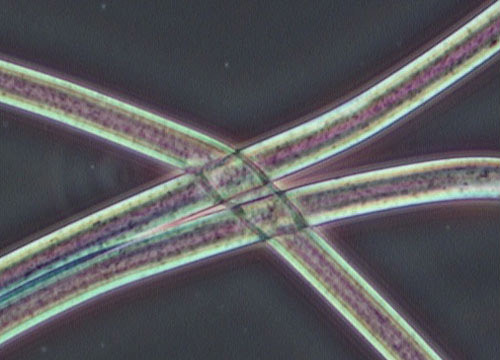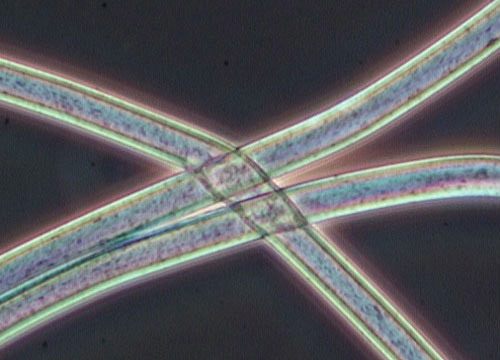Dacron Polyester Fibers
Polyesters may be most memorable as the material used to make sleek and shiny disco clothes during the seventies. Polyester fiber does, however, have more practical uses and may be found in a variety of domestic products, such as mattresses, pillows, seat cushions and custom upholstery.
 Negative
Negative
 Positive
Positive
Positive
All polyesters and other manufactured fibers are not alike. The composition of each fiber is distinct and has its own set of physical characteristics. The United States Federal Trade Commission has defined and generically named man-made fibers, for instance, polyester, nylon, rayon, and spandex. Yet, each fiber in a category may be different as producers chemically and physically modify the basic composition of the generic fiber. Variations produced may provide benefits such as softer feel, brighter color, or greater warmth retention.
Negative
Improved fibers are owned and trademarked by the company that produces them. Dacron is a registered trade name for a polyester fiber made by DuPont. Dacron is especially known for its durability, consistency, and quality. Dacron, unlike natural fibers, is hypoallergenic, non-absorbent, and mildew-resistant. The versatility of synthetic fibers as a whole has warranted them an important and well-deserved place in the textile industry.













